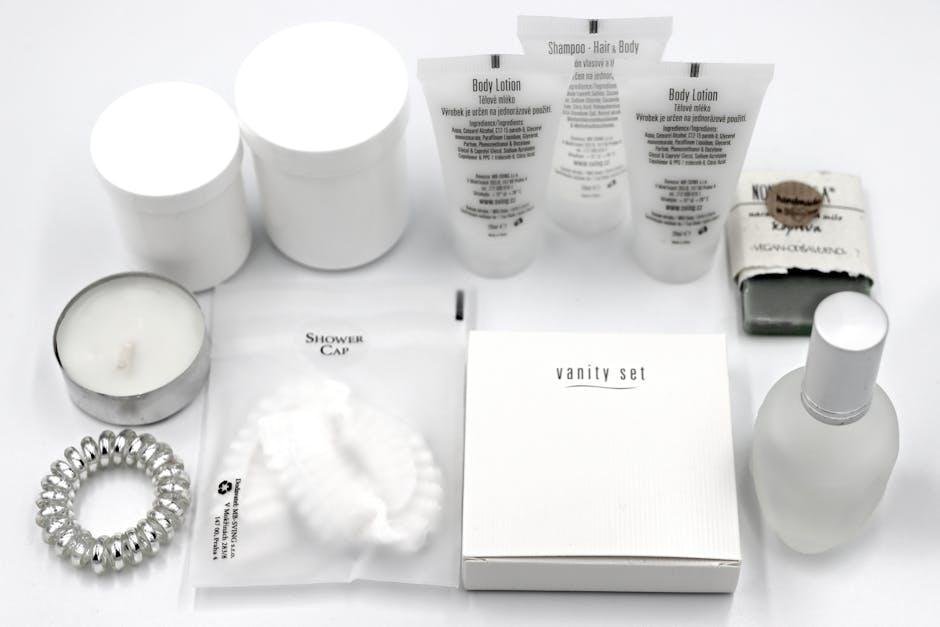In an age where consumers are becoming increasingly mindful of what they apply to thier skin, the landscape of skincare products is witnessing a transformative shift. The rise of organic skincare,with its promise of purity and sustainability,is more than just a fleeting trend; it reflects a deeper understanding of the interconnectedness between health,environment,and beauty. As awareness around harmful chemicals and synthetic ingredients continues to grow, so does the allure of nature-based alternatives that boast not only efficacy but also an eco-conscious ethos. In this article, we will explore the factors driving the growth of organic skincare products, the benefits they offer, and how this burgeoning market is reshaping our approach to personal care in a world increasingly focused on wellness and sustainability.
Exploring the Rise of Organic Ingredients in Skincare Formulations
As the demand for clean,enduring beauty grows,skincare brands are increasingly incorporating organic ingredients into their formulations. Consumers are becoming more discerning about what they apply to their skin, leading to a important surge in awareness surrounding the benefits of natural elements. By opting for organic components derived from plants, herbs, and other natural sources, brands emphasize not only the quality of their products but also their commitment to environmental sustainability. This evolution reflects a broader cultural shift towards holistic wellness and conscious living, where one’s skincare choices mirror their values and lifestyle.
The rise of organic skincare can be attributed to various factors that resonate with modern consumers. Key motivations include:
- Health Consciousness: People are increasingly aware of harmful chemicals and toxins found in traditional skincare products.
- Environmental Impact: Organic farming practices promote biodiversity and reduce pollution, appealing to eco-conscious shoppers.
- Clarity: Brands utilizing organic ingredients often provide clearer product labeling and ingredient sourcing.
To further illustrate the growing market, here’s a comparative look at the percentage increase in organic skincare product sales over recent years:
| year | Percentage Increase in Sales |
|---|---|
| 2020 | 25% |
| 2021 | 35% |
| 2022 | 40% |
| 2023 | 50% |
This table highlights the remarkable ascent of organic skincare products, showcasing how consumer preferences continue to shape the industry landscape. As brands innovate and develop more effective organic solutions,the allure of natural skincare is only set to grow,leading to exciting new developments in formulation technology.

The Benefits of Going Green: How Organic Products Nourish your Skin
The shift towards organic skincare products is rooted in a desire for healthier, safer options that benefit both the body and the environment. Organic ingredients are cultivated without the use of synthetic pesticides or fertilizers, ensuring that the products we apply to our skin are free from harmful chemicals. This natural approach not only minimizes the risk of skin irritations and allergic reactions but also promotes a radiant complexion, making your skin feel fresh and rejuvenated. Some notable benefits include:
- Enhanced Nourishment: Organic products are rich in vitamins, minerals, and antioxidants that nourish the skin at a cellular level.
- Environmental Goodness: The cultivation of organic ingredients supports sustainable farming practices that preserve ecosystems.
- Gentle on Skin: Free from harsh chemicals, organic skincare is ideal for sensitive skin types.
- Holistic Approach: Many organic products also incorporate aromatherapy, offering a multi-sensory experience that soothes the mind.
Moreover, the shift to organic isn’t just beneficial for users; it also fosters a sense of community among eco-conscious brands and consumers. As more individuals prioritize their skincare choices, companies are inspired to adopt sustainable practices and transparency in their formulations. This growing movement urges consumers to become more informed about the products they choose. A glance at the ingredients can reveal the purity and intention behind the formulation, fostering a connection with the brands we trust.Below is a simple comparison highlighting common ingredients found in traditional vs. organic skincare:
| Traditional Skincare | Organic Skincare |
|---|---|
| Synthetic Fragrance | Essential Oils |
| Parabens | Natural Preservatives |
| Sulfates | Cleansing Clays |
| Artificial Colors | Plant-based Colors |

Consumer Choices and Trends: The Shift towards Eco-Friendly Beauty
In a world increasingly driven by sustainability, consumers are gravitating towards eco-friendly beauty products that align with their values and lifestyle choices. With growing awareness of the environmental impact of traditional beauty routines, individuals are now more discerning in their purchases. This shift has led to a surge in demand for organic skincare items, characterized by their natural ingredients, cruelty-free practices, and environmentally responsible packaging. The appeal of these products goes beyond just ethical considerations; many consumers experience improved skin health and vitality, as they seek formulations devoid of synthetic chemicals, preservatives, and harmful additives.
The influence of social media cannot be overlooked in this evolving landscape,where beauty influencers and eco-conscious brands communicate the benefits of organic skincare to a wider audience. It’s not merely about marketing; it’s about cultivating a community focused on holistic well-being and sustainability. Key trends shaping this movement include:
- Transparency: Brands that openly disclose their sourcing methods and ingredient lists build trust with consumers.
- Minimalist Formulations: Skincare routines are simplifying, with demand for fewer but more effective natural ingredients.
- Refillable Packaging: eco-conscious consumers prefer brands that offer sustainable packaging solutions.

navigating the Market: Tips for Selecting Quality Organic Skincare Products
Choosing high-quality organic skincare products can seem daunting, especially with the vast array of options available in today’s market. To simplify your selection process, focus on a few key aspects: ingredients, certifications, and brand transparency. Look for products that boast short ingredient lists filled with recognizable and natural components. avoid items with synthetic additives, as they can negate the benefits of your organic regimen.Additionally, seek out organic certifications, such as USDA Organic or Ecocert, as these lend credibility to the product’s claims and provide peace of mind.Transparency about sourcing and production practices is equally crucial; brands should readily share their ethical standards and ingredient origins.
Another effective strategy is to read reviews and testimonials from other consumers.This can provide invaluable insights into the product’s performance and overall satisfaction.Here’s a rapid checklist for evaluating skincare products:
- Is it cruelty-free? Ensure the brand does not test on animals.
- Are the ingredients sourced sustainably? Look for companies that prioritize eco-friendly farming practices.
- Does it have any harmful additives? Steer clear of parabens, sulfates, and artificial fragrances.
- What do others say? Check user reviews across various platforms for unbiased opinions.
For added clarity, consider comparing a few popular organic brands side by side against these criteria. The table below summarizes key attributes of select brands to help you make informed decisions:
| Brand | Certified Organic | Cruelty-Free | Sustainable Sourcing |
|---|---|---|---|
| brand A | yes | Yes | Yes |
| Brand B | No | Yes | No |
| Brand C | Yes | No | Yes |
The Conclusion
As we stand at the crossroads of nature and innovation, the rise of organic skincare products symbolizes a broader shift towards conscious consumerism and holistic wellness. Emphasizing ethically sourced ingredients and environmentally friendly practices, these products not only promise radiant skin but also reflect a commitment to sustainability and health. As consumers become increasingly discerning about what they put on their skin, the organic skincare movement invites us to reconsider our choices and the impact they have on our bodies and the planet.
As this trend continues to flourish, we can expect a vibrant marketplace where traditional beauty paradigms are challenged in favor of a more biodiverse, clear, and health-conscious approach. The journey ahead is one that intertwines personal care with planetary stewardship, reminding us that true beauty emanates from harmony with nature. In this evolving landscape, let us embrace the growth of organic skincare—not just as a trend, but as a lifestyle choice that honors both ourselves and our shared environment.

